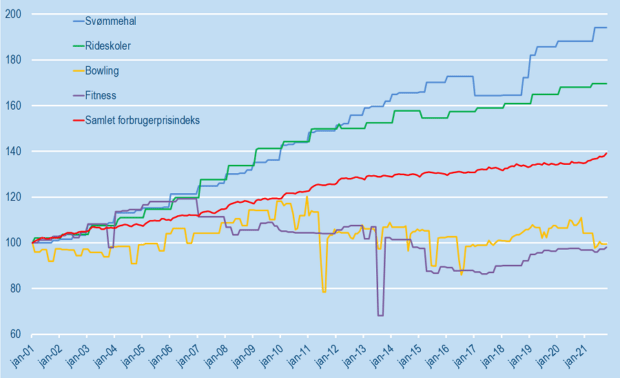News
Off the deep end: Swimming pool tickets have soared in recent years
This article is more than 3 years old.
Meanwhile, activities like bowling and fitness have become much more affordable when compared to the consumer price index

It’s become quite a bit more expensive since 2001 (photo: Pixabay)
If you’ve tried signing up your kid for swimming lessons in Copenhagen, you’re probably well aware that it can be an arduous task, given the immense demand and lack of pool times.
Perhaps that’s why it’s so expensive.
In fact, the price of a trip to the local pool has doubled since 2001 – in stark contrast to some other recreational activities.
The same can be said for horse riding, while the price for activities such as bowling and fitness centres has remained relatively similar to 20 years ago.
“The price of riding and going to the pool has steadily increased since 2001, while it’s actually gotten cheaper to exercise in the gym and only marginally more expensive to go bowling,” said Danmarks Statistik spokesperson, Martin Birger Larsen.
READ ALSO: Parliament to address skyrocketing energy prices
Pricey pools
In 2021, the price was 4.5 percent lower for fitness and 8.2 percent higher for bowling compared to 2001.
During the same period, the price to go swimming and horse riding rose by 92 and 66.2 percent.
Since 2001, the consumer price index (the red line in the image below) has increased by 36.1 percent, so bowling (yellow line) and fitness centres (purple) have become more affordable compared to general prices, while swimming (blue) and riding schools (green) have become more expensive.











































